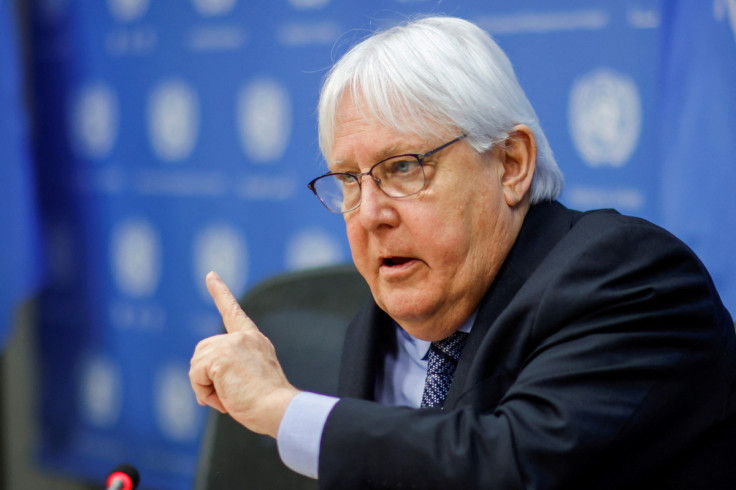UN Says Deal Close On Resuming Russia Ammonia Exports Via Ukraine

A deal is "quite close" to resume Russian ammonia exports via a pipeline to a Black Sea port in Ukraine, U.N. aid chief Martin Griffiths told a Reuters NEXT event on Wednesday, stressing that it was "almost more important" than ensuring grain exports.
Facilitating Russia's food and fertilizer shipments is a central aspect of a package deal brokered by the United Nations and Turkey in July - and extended earlier this month - that also restarted Ukraine's Black Sea shipments of grain.
Russia's Feb. 24 invasion of its neighbor had stalled Ukraine's Black Sea exports of foodstuffs and also shut down a pipeline transporting ammonia from Russia to a Black Sea port in Ukraine. Ammonia is a key ingredient in nitrate fertilizer.
When asked about a deal to restart the ammonia pipeline, Griffiths said: "I think we're quite close, we're edging towards it this week."
"It's essential," he said, warning that if Russia's fertilizer exports were not resumed then it could spark a food availability problem in a year. "So it's hugely important, almost more important than grain."
The United Nations has said Russia's war in Ukraine worsened a global food crisis, pushing some 47 million people into "acute hunger" and sparking the need for the export deal. Ukraine and Russia are both key global grain and fertilizer exporters.
"The operation of that ammonia pipeline from Russia through Ukraine ... is well understood, it's not difficult, it can be started within a week or two. I think we'll get there," said Griffiths.
To view the Reuters NEXT conference live on Nov. 30 and Dec. 1, please click here.
© Copyright Thomson Reuters 2025. All rights reserved.





















